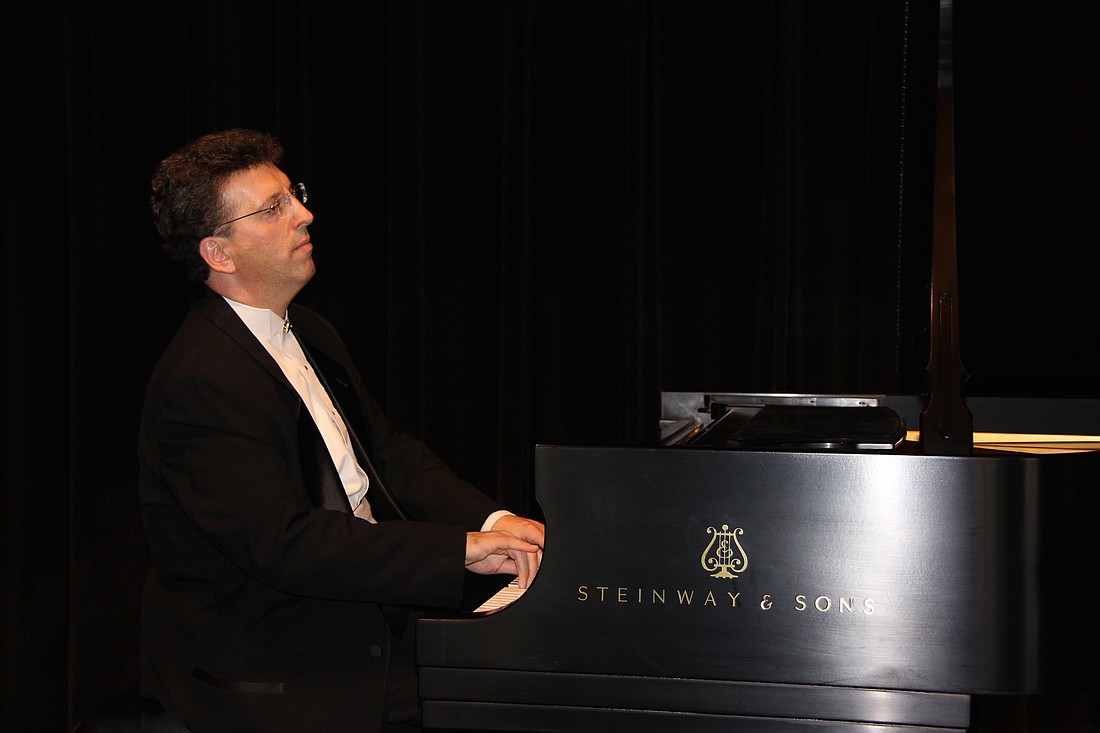- November 23, 2024
-
-
Loading

Loading

Jeffrey Biegel and Beethoven would’ve had plenty to bond over if they weren’t born 191 years apart.
Key Chorale’s latest concert, Haydn’s “Mass in Time of War” and Beethoven’s “Choral Fantasy,” will feature the acclaimed pianist, who didn’t have full hearing capability until the age of 3.
“I have this connection to Beethoven — I started off not being able to hear and now I do, opposite of him, he ended up stone deaf,” Biegel says. “But I’ve been able to adapt to my new world.”
Biegel notes that most children are fairly developed by 3, because it’s when they learn to communicate with other people. However, he didn’t respond to anyone as a 3-year-old, and it wasn’t until his parents took him to a doctor, who turned Biegel toward a wall, called his name and got no response, that the problem was examined.
The doctor found 80% blockage in his ears, meaning Biegel was not totally deaf but had extremely poor hearing. Doctors fixed the problem surgically by releasing the fluid buildup, and it was during this procedure that Biegel’s life changed.
He soon began taking piano lessons, and by the age of 7, he knew he wanted to make a life of it.
“Vladimir Horowitz playing Beethoven Sonata in f minor, Opus 57, that was the first very important piece of music I ever heard and I had to play it,” he says. “It had this sense of mystery … and it was a sense of communication that I related to.”
However, there was a sense of repression in his playing that was evident to his piano teacher by the time he was 16. She pulled the music out of him, he says, but she didn’t understand what was holding him back because she didn’t know his personal history.
“I think that because I had created an invisible cage around me for those first few years to shield myself against what I couldn’t hear, that created an inhibition,” he says.
Despite his inhibitions, he was quickly on the path to a distinguished music career, and Biegel attributes this success to music being his first language. As a toddler, he would feel the vibrations of sounds through the floor. His family had big speaker stereos, and he was immediately attracted to something to which he could attach a form of communication.
He thinks tapping into that world of someone who once appreciated music from a different perspective has helped him become a better musician — one who’s also a highly desirable guest performer with groups like Key Chorale.
Biegel says he never turns down a request to play Beethoven’s “Choral Fantasy,” so he didn’t hesitate when Key Chorale Artistic Director Joseph Caulkins contacted him. Every piano is different and takes on a life of its own with Beethoven pieces, he says, so he never knows what’s going to happen in a piece like this, but that’s what makes it exciting.
The work begins as a solo piano piece until the orchestra comes in, followed by the chorus for the finale, which is led by six soloists.
Lorraine Murphy, a 30-year member of Key Chorale, is one of the vocalists.
She notes the singers don’t come in until measure 409, so the work is heavy on the piano section, but when they do, they make quite an appearance.
“It escalates to the point of — I don’t know, high heaven!” she exclaims. “It transcends all earthy problems for the joy of God and the art form.”
Four of the soloists are guest vocalists, so Murphy looks forward to being one of two Key Chorale members chosen.
“It’s exciting for me to be representing this group from the inside,” she says. “And having him (Biegel) here is monumental.”
Murphy, who says her faith is an important component of her music career and life as a whole, enjoys the piece because it’s very sacred in its presentation.
“There’s something euphoric about the ‘Choral Fantasy,’” she says. “There’s nothing quite like the human voice that can penetrate the soul.”
Correction: The print edition of this story listed an incorrect ticket price.